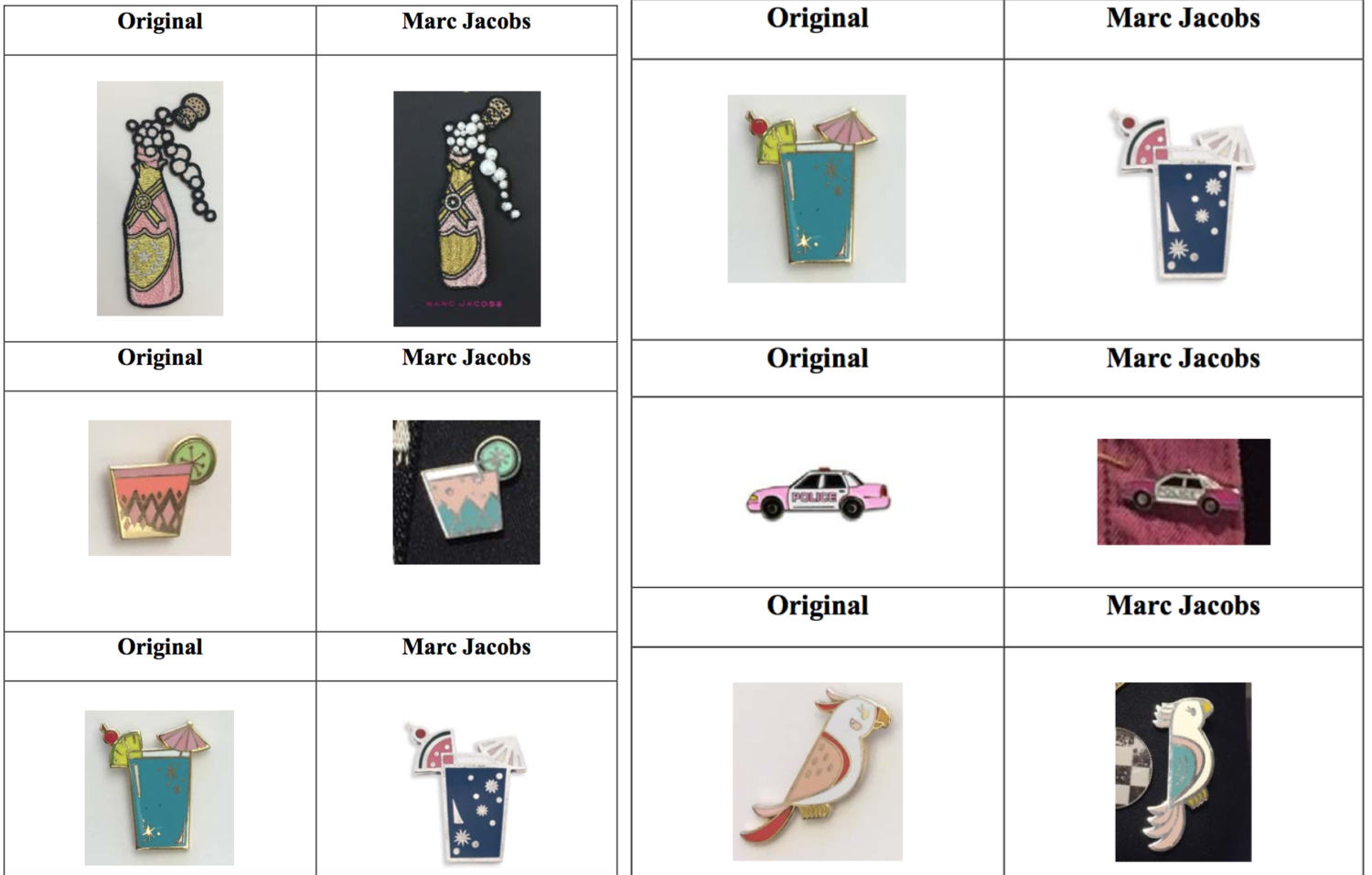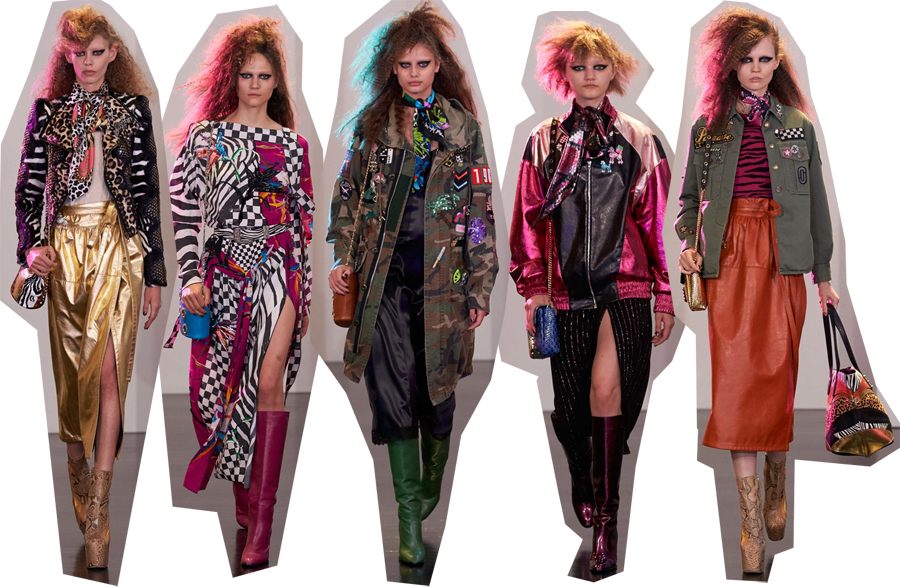“We made it kitsch.” That is what Marc Jacobs said of his eponymous label’s more-is-more Resort 2017 collection with its crimped-haired models decked out in bedazzled bombers, puffy-sleeved dresses, and metallic fabrications. While Jacobs called his pre-season outing an Eighties “paradise,” a small group of indie artists had a different take on collection; in a copyright infringement lawsuit filed several months after Jacobs showed his Resort wares, Katie Thierjung, Laser Kitten, and Wildflower Co. accused Marc Jacobs of “intentionally and knowingly” copying their original pin and patch designs for the collection.
According to the complaint, which was filed in a New York federal court in November 2017, Marc Jacobs International’s “Resort 2017 collection featured enamel pins and embroidered patches on everything from jackets and jeans to bags and shoes.” The problem? “A number of those pins and patches were flagrant, unlawful copies of [the plaintiffs’] popular original pins and patches,” which are protected by copyright law.
The plaintiffs alleged that Marc Jacobs is on the hook for infringing their copyrights (in accordance with the Copyright Act of 1976) and for providing false copyright management information – such as the copyright holder’s name or other identifying information – in violation of the Digital Millennium Copyright Act (“DMCA”). As a result, they are seeking monetary damages of “$25,000 per violation” and a disgorgement of profits that Marc Jacobs has earned from selling the allegedly infringing pins and patches. They are also after injunctive relief, which would permanently bar Marc Jacobs from marketing and selling the allegedly infringing products at issue.
Fast forward to last week and Judge John F. Keenan of the Southern District of New York handed Marc Jacobs a win by tossing out the plaintiffs’ DMCA claim, in which they alleged that the brand “intentionally and knowingly provided false copyright management information in connection with the infringing [pins].” Specifically, they argued that “Marc Jacobs placed its own branding on the [pins’] packaging … with the intent of concealing an infringement of the plaintiffs’ rights under the Copyright Act.”
 The artists’ designs (left) & Marc Jacobs’ allegedly infringing versions (right)
The artists’ designs (left) & Marc Jacobs’ allegedly infringing versions (right)
In his opinion and order filed last week, Keenan decided on Marc Jacobs’ motion to dismiss, in which the brand alleged that the plaintiffs failed to adequately plead their DMCA claim because, among other things, they failed to show that Marc Jacobs actually provided false copyright management information in connection with the accused products.
According to Marc Jacobs, the brand simply put its trademark on the pins’ packaging – and that “the inclusion of this branding on the packaging does not convey copyright management information because trademarks do not provide information about copyright ownership without something more, such as a copyright symbol.” The plaintiffs disagreed, asserting that the Marc Jacobs name qualifies as copyright management information as it conveys “identifying information about” an author or copyright owner and is an identifying symbol referring to copyright information.
So, before the court last week was the question of whether Marc Jacobs’ inclusion of its brand name, alone, on the pins’ packaging amounted to copyright management information.
Judge Keenan pointed to a decision in a previous case involving copycat pins, in which the court held that in order for something to qualify as copyright management information, it must include “at least two of the following on the pin itself or its packaging (or both): the copyright holder’s name, trade name, or brand name; logo; and website or social media handle.” Since, Marc Jacobs only included its brand name and no other identifying information, the brand is not on the hook, Judge Keenan held, for the DMCA claim.
Last week’s decision is not a total win for Jacobs, though. Still on the table going forward, the plaintiffs’ copyright infringement claim.
* The case is Laser Kitten, LLC, Katie Thierjung, and Wildflower + Co., Inc., v. Marc Jacobs International, LLC, 1:17-cv-08613-JFK-BCM (SDNY).











